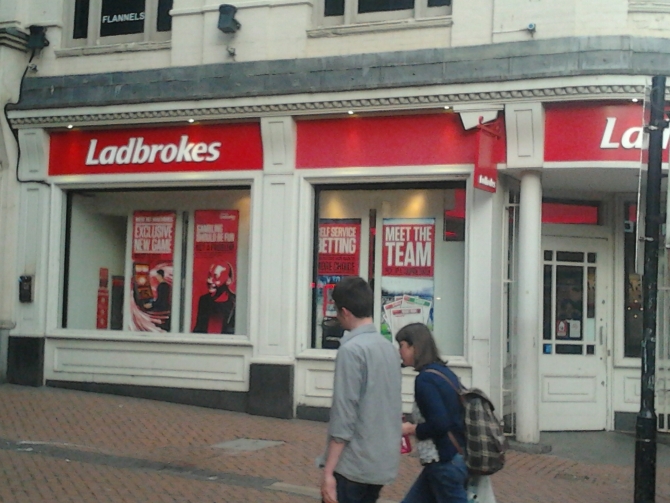During the recession bookmakers were one of the few high street success stories, preventing shop occupancy levels falling even further. Subsequently local authorities have sought to use planning regulations to halt their proliferation amid fears over gambling and their “monopolisation” of prime units.

In addition, tougher regulations on gambling laws and gaming machines have pushed many brands online and caused profits to drop – one of the key reasons Ladbrokes has announced the upcoming closure of 60 shops.
The bookmaker has revealed that pre-tax profit dropped by 13.5 per cent to £98 million in 2014 despite the strong trading season during the football World Cup. It blamed “regulatory headwinds” for the issue, along with a disappointing Boxing Day trading in which the chain lost £8.1 million year on year due to a series of shock results in the Premier League.
Chief executive Richard Glynn, who was brought in in April 2010 to head up a five year recovery programme in the chain’s online and gaming machine operations, remains optimistic that this year will see revenues and profits begin to grow once more.
He says; “Whilst recognising there are regulatory headwinds, Ladbrokes is confident in its plans for 2015.
“Strong operational delivery delivered a second half of growth as envisaged, but the £8 million hit on Boxing Day did take some of the shine off our performance.”
Ladbrokes announced in December that it would be launching a search for a new chief executive sometime this year as Mr Glynn will be stepping down. This decision has been partially blamed upon an extremely poor half year result, when profits were shown to have dropped by almost 50 per cent to £27.7 million.
In the past year alone, Ladbrokes closed 89 sites as they were incurring total losses of £1.5 million per annum, bringing the total estate to just over 2,200 outlets. This has been a trend in many major gambling chains, where greater powers awarded to local authorities have put the brakes on expansion and changing consumer preferences have forced many to cut their portfolios in order to reduce losses.
As yet, Ladbrokes has declined to reveal which of its locations will be affected by the upcoming closures, but has warned that further closures may be required in the future. This is due, in large part, to the increase in Machine Game Duty from 20 per cent to 25 per cent which will come into effect on the 1st of March this year.
In a statement, Ladbrokes said; “The increase in Machine Gaming Duty from March 1 and the anticipated impact of the new UK regulations in 2015 means that further shop closures will be inevitable.
“We continue to optimise the performance of our estate and expect to close a further 60 shops during 2015. We will again try to limit the impact of these closures on our shop teams.”
With Ladbrokes set to focus upon digital innovation and its online platform, it seems that growth may soon return to the beleaguered bookmaker. However, the closure of numerous outlets, including those of other gambling chains, is likely to have a negative impact on high street vacancy rates.
Given this scenario local authorities will face the challenge of balancing opposition to the proliferation of bookmakers with the need to ensure that high street retail property does not stand empty.
Previous Post
The Crown Estate welcomes Uno de 50 to Regent Street